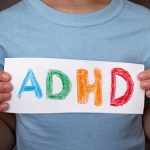 February 26 – March 4 is National Eating Disorder Awareness Week, and in recognition, we’ve gathered some of Bel Marra Health’s most informative articles dealing with a variety of topics such as bulimia nervosa, digestion, and ADHD.
February 26 – March 4 is National Eating Disorder Awareness Week, and in recognition, we’ve gathered some of Bel Marra Health’s most informative articles dealing with a variety of topics such as bulimia nervosa, digestion, and ADHD.
Eating disorder patients face higher autoimmune disease risk
Eating disorder patients face a higher autoimmune disease risk, compared to those without eating disorders. The findings come from Finnish researchers who observed an association between eating disorders and autoimmune disease risk.
Advertisement
The risk of eating disorders is higher among somatic illnesses like type 1 diabetes, inflammatory bowel diseases, and other autoimmune diseases. Additionally, a prior autoimmune disease has been shown to increase the risk of mood disorders and schizophrenia. Continue reading…
 Type 2 diabetes risk increases with binge eating disorder, bulimia nervosa
Type 2 diabetes risk increases with binge eating disorder, bulimia nervosa
Bulimia nervosa, an eating disorder increases the risk of type 2 diabetes. Bulimia nervosa is when a person binges and purges food. This means they will consume large amounts of food only to expel it from their body immediately afterward. This can be done through vomiting or with the use of laxatives. Causes of bulimia nervosa can range from psychological, biological, social and cultural influences.
Type-2 diabetes is a condition where the body becomes resistant to insulin or doesn’t produce enough of it. The body’s metabolism becomes affected – this is how the body breaks down food in order to use it for energy. Causes of type-2 diabetes could be genetic, environmental, result from obesity or lack of physical activity. Continue reading…
 Eating disorders or sleep disorders: Nocturnal eating syndrome vs. sleep-related eating disorder
Eating disorders or sleep disorders: Nocturnal eating syndrome vs. sleep-related eating disorder
Sleep eating – nocturnal eating syndrome – is a sleep disorder, but it is different from a sleep-related eating disorder. Sleep-related eating disorders are linked with insomnia and nocturnal eating syndrome is associated with parasomnia.
In nocturnal eating syndrome (NES) the individual can eat once, twice or even more throughout the night while they are unconscious, and they are often not aware of what they are doing. In a sleep-related eating disorder (SRED) an individual consumes nearly one-quarter of their daily calories in the nighttime as a means to fall asleep. In SRED individuals tend to have insomnia and believe eating can help them sleep. Continue reading…
 Attention deficit hyperactivity disorder (ADHD) tied to higher eating disorders risk
Attention deficit hyperactivity disorder (ADHD) tied to higher eating disorders risk
Attention deficit hyperactivity disorder (ADHD) is tied to a higher risk of eating disorders. Attention deficit hyperactivity disorder is a condition that commonly affects children and can stay with a person right into adulthood. The disorder is characterized by an inability to focus or pay attention, difficulty controlling behavior and hyperactivity.
There are three types of ADHD: predominately hyperactive-impulsive, predominately inattentive, and combined hyperactive-impulsive and inattentive. In predominately hyperactive-impulsive, six or more of the symptoms are part of the hyperactivity-impulsive category. Predominately inattentive children have difficulty getting along with others and they may sit quietly but are not paying attention. In the latter situation parents and teachers may overlook the child and may not realize something is wrong because the child is behaving well, although they are not learning anything. Combined hyperactive-impulsive and inattentive is the most common type of ADHD where symptoms from the two other types are seen. Continue reading…
 Your eating habits are hurting your digestion
Your eating habits are hurting your digestion
Advertisement
Are you the last one to leave the table at a family dinner? Do you like your meals without hurry, thoroughly chewing every bite? Do you hate it when you’re in a rush and have to gulp down your food?
If this description fits you well, good news: You are a slow eater! Eating slowly has been found to improve digestion because you take the time to chew your food properly. Also, you don’t eat as much because you gradually become full with less food, so your weight stays in check.
On the other hand, if you are a fast eater, you may be in for a digestive trouble. Eating in a rush means you’re not chewing your food properly, so your digestive system has to work harder to break down those larger food bits. As a result, you suffer from indigestion and even constipation. Continue reading…
